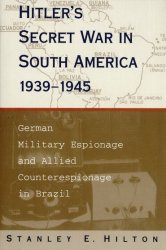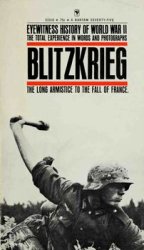Engel v. Vitale (1962) was a highly controversial judicial decision that held unconstitutional the recitation of a prayer composed by a group of clergymen for the New York Board of Regents as part of its program of “moral and spiritual training in the schools.”
In this decision, the Supreme Court ruled that the State Board of Regents of New York violated the establishment clause, a section of the First Amendment of the Constitution, by mandating the daily recitation of a prayer composed by the government. The prayer in question read: “Almighty God, we acknowledge our dependence upon Thee, and we beg Thy blessing upon us, our parents, our teachers and our country.” This daily invocation was adopted on the recommendation of the Board of Regents, and it was said aloud at the beginning of each school day, in every classroom, in the presence of a teacher.
Five plaintiffs, all parents of children, brought the lawsuit. The plaintiffs, with the backing of the American Civil Liberties Union, included members of the Jewish faith, the Society for Ethical Culture, the Unitarian Church, and one nonbeliever. The defendants represented the Board of Education of Union Free School District Number Nine.
The lawsuit challenged the constitutionality of the practice of school prayer on two separate grounds. First, the plaintiffs argued that the use of the official prayer in public schools was contrary to their religious beliefs and practices and thus infringed on their constitutionally guaranteed free exercise of religious rights. Second, they alleged that both the state law authorizing the use of prayer in the public schools and the school district’s regulation ordering the recitation of the prayer violated the establishment clause. The New York State Supreme Court upheld the prayer recitation based on its conclusion that the practice did not amount to religious instruction and was permissible as an “accepted” practice.
On December 4, 1961, the U. S. Supreme Court agreed to hear the case. Engel was argued on April 3 and 6, 1962. In a 6-1 decision, with neither Justices Felix Frankfurter nor Byron White participating, the U. S. Supreme Court reversed the state decision, holding the daily recitation of the regent’s prayer to be in violation of the establishment clause.
Justice Hugo L. Black, writing for the Court, held that “the Establishment clause. . . is violated by the enactment of laws which established an official religion whether those laws operate directly to coerce nonobserving individuals or not. . .” The Court ruled that neither the nondenominational character of the prayer nor the fact that students could be excused from the ceremony allowed this legislation to circumvent the restrictions of the establishment clause. The Court ignored the fact that the prayer did not promote a belief of any kind. Rather, the justices focused on the state’s promotion of religious practices in the public schools, concluding that this promotion alone was constitutionally prohibited. More narrowly, the Court focused on the fact that the prayer was composed by the state, holding that “it is no part of the business of the government to compose official prayers for any group of American people to recite as a part of a religious program carried on by the government.”
Justice Potter Stewart wrote the sole dissent in Engel. In a scathing opinion, he asserted that the Court had violated the free exercise rights of the other students in the district, and he vigorously asserted the position that the students who wished to say the prayer should be permitted to do so.
After the ruling, many people were outraged, calling for the impeachment of Chief Justice Earl Warren. Many members of Congress likewise delivered heated responses. Some genuinely believed the Court’s decision was incorrect, whereas others expressed general criticisms of the Court, which had earlier handed down desegregation decisions they found objectionable. Representative George Andrews of Alabama said, “They put the Negroes in the schools and now they’ve driven God out.” Congressman John Rooney of New York warned, “that the ruling could put the United States schools on the same basis as Russian schools.” At a news conference, President John F. Kennedy responded: “We have in this case a very easy remedy, and that is to pray ourselves.” Despite the ruling, prayer in public schools remains an emotionally charged issue.
Further reading: Robert S. Alley, School Prayer: The Court, the Congress, and the First Amendment (Buffalo, N. Y.: Prometheus Books, 1994); Terry Eastland, Religious Liberty in the Supreme Court: The Cases That Defined the Debate over Church and State (Washington, D. C.: Ethics and Public Policy Center, 1993); Thayer S. Warshaw, Religion, Education, and the Supreme Court (Nashville, Tenn.: Abingdon, 1979).
—Elizabeth A. Henke




 World History
World History









